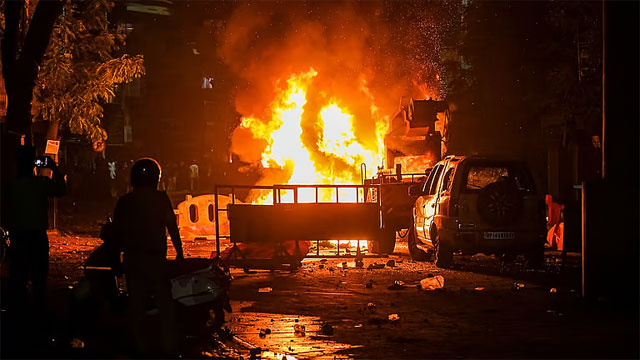Daijiworld Media Network - Bengaluru
Bengaluru, Jul 25: Once hailed as a ‘garden of peace for all communities’, Karnataka is now witnessing a worrying surge in religion-related crimes. Offences such as murder, assault, and violence in the name of religion have seen a steady increase in recent years. While there were 208 such incidents in 2021, the number rose to 345 in 2024, marking a 64.87% rise.
According to data from the State Crime Records Bureau, a total of 123 such cases were registered across the state till May this year. Communal and religious clashes have gone up by 133.31%. In 2021, there were only nine cases of communal riots, which increased to 21 in 2024.

Representational image
Experts attribute this rise to factors such as misinformation on social media, politically polarised environments, and long-standing religious or caste-based tensions in some districts.
Religion-related offences are being booked under multiple sections and categorised under caste, communal, linguistic, regional, and religious issues. A police commissioner, speaking on condition of anonymity, reiterated that misinformation on social media, political divisions, and historical caste-religious unrest were major contributors.
Religious violence is increasingly being fuelled by provocative social media posts. While individuals are swiftly arrested in some cases, action is often delayed if the person involved has political backing. “Whenever such issues arise, political support for the accused is not uncommon, regardless of which party is in power,” said the officer.
Effective intelligence could prevent riots and related issues, but state and local intelligence units are reported to be weak. With zilla and taluk panchayat elections approaching, political activity is on the rise. Although the government has announced several measures on paper — such as anti-communal squads and special action forces — they are often reactive and rarely implemented, said a senior IPS officer.
Another IPS officer, currently serving as an SP, noted that communal hostility has become ingrained in society. “People are no longer tolerant of even minor mistakes or mischief by members of other communities. Religious processions that cause minor inconvenience often lead to major flare-ups, especially in districts with historical tensions,” he said. According to him, perpetrators are often encouraged and rarely punished, with conviction rates remaining low.
A third IPS officer stated that while unrest was once confined to specific regions, social media has now made it a state-wide issue. “Police are monitoring such posts and taking action wherever required,” he added.